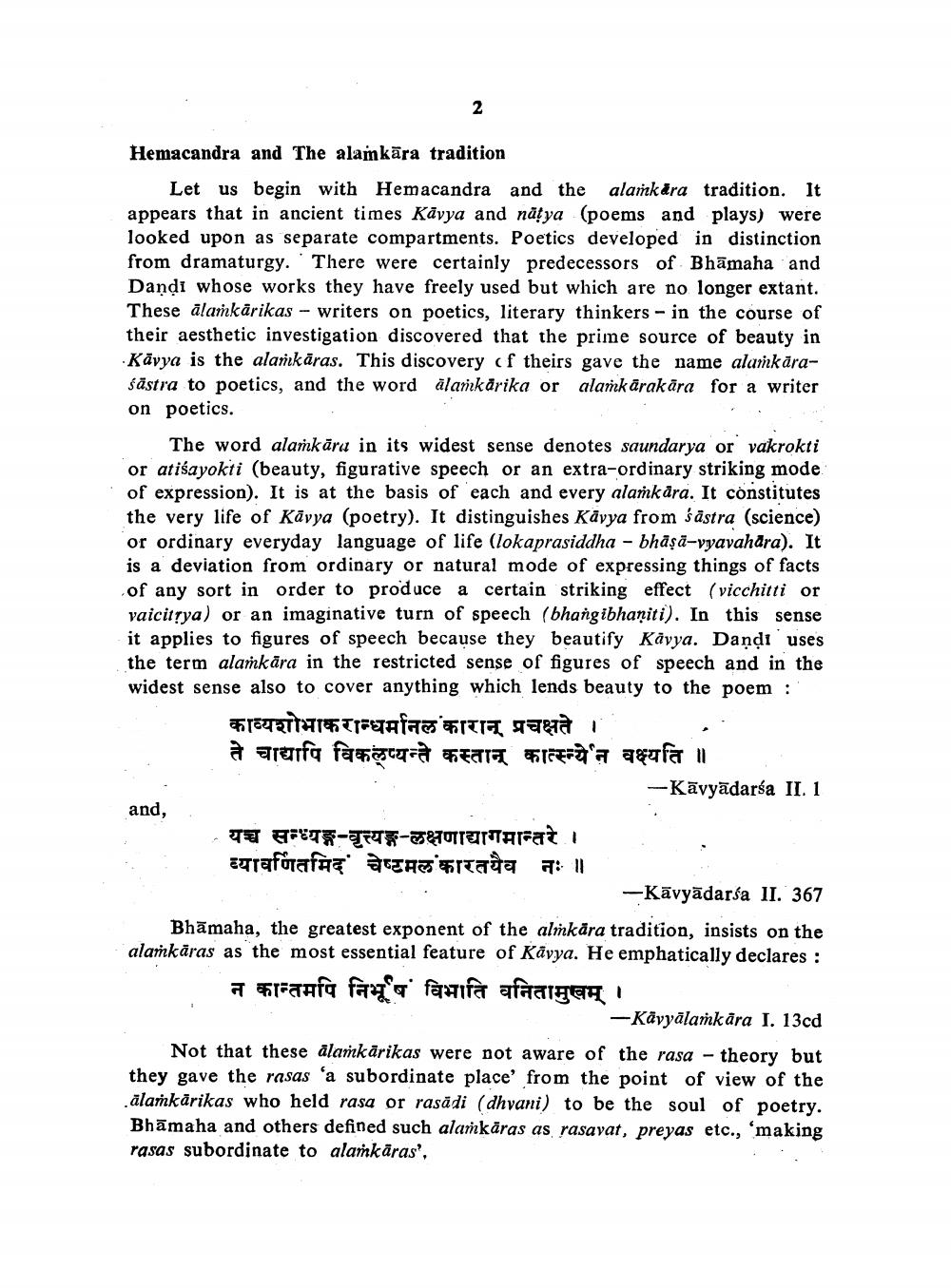________________
2
Hemacandra and The alamkara tradition
Let us begin with Hemacandra and the and the alamkāra tradition. It appears that in ancient times Kavya and natya (poems and plays) were looked upon as separate compartments. Poetics developed in distinction from dramaturgy. There were certainly predecessors of Bhāmaha and Dandi whose works they have freely used but which are no longer extant. These alamkarikas writers on poetics, literary thinkers in the course of their aesthetic investigation discovered that the prime source of beauty in -Kavya is the alamkaras. This discovery of theirs gave the name alankarasästra to poetics, and the word alamkarika or alamkarakāra for a writer on poetics.
The word alamkāra in its widest sense denotes saundarya or vakrokti or atisayokti (beauty, figurative speech or an extra-ordinary striking mode of expression). It is at the basis of each and every alamkara. It constitutes the very life of Kavya (poetry). It distinguishes Kavya from sastra (science) or ordinary everyday language of life (lokaprasiddha bhasa-vyavahāra). It is a deviation from ordinary or natural mode of expressing things of facts of any sort in order to produce a certain striking effect (vicchitti or vaicitṛya) or an imaginative turn of speech (bhangibhaṇiti). In this sense it applies to figures of speech because they beautify Kavya. Dandt uses the term alamkara in the restricted sense of figures of speech and in the widest sense also to cover anything which lends beauty to the poem : काव्यशोभाक रान्धर्मान'कारान् प्रचक्षते ।
à arrfa fa-à geala_là'a ayufa 11
and,
यच्च सन्ध्यङ्ग-वृत्त्यङ्ग- लक्षणाद्यागमान्तरे । व्यावणितमिद चेष्टमल' कारतयैव नः ॥
-Kavyadarśa II. 1
-Kävyädar a II. 367
Bhamaha, the greatest exponent of the alinkara tradition, insists on the alamkaras as the most essential feature of Kavya. He emphatically declares: न कान्तमपि निर्भूषं विभाति वनितामुखम् ।
-Kavyalamkara I. 13cd
Not that these alamkärikas were not aware of the rasa - theory but they gave the rasas 'a subordinate place' from the point of view of the alamkarikas who held rasa or rasadi (dhvani) to be the soul of poetry. Bhamaha and others defined such alamkäras as rasavat, preyas etc., 'making rasas subordinate to alamkaras',




